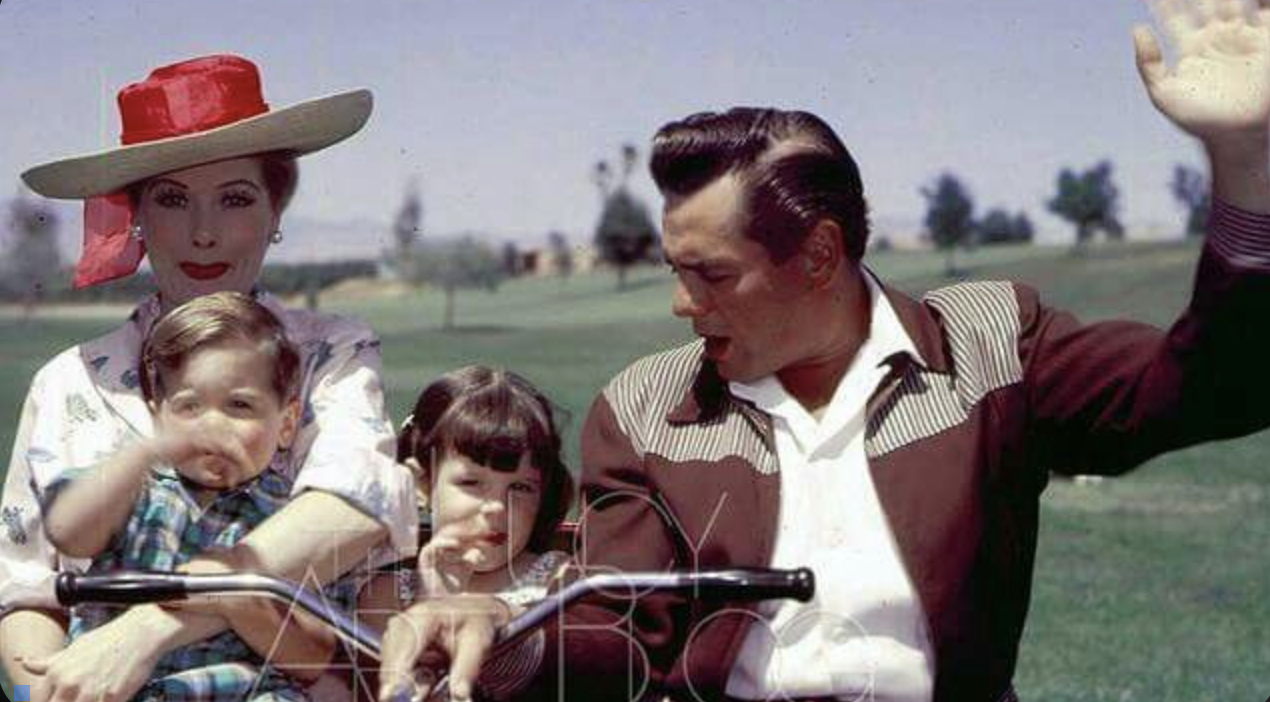
For millions of viewers in the 1950s, I Love Lucy wasn’t just a sitcom—it was a love story. A zany, hilarious, and often chaotic love story centered around Lucy and Ricky Ricardo, the fiery redhead and the charming Cuban bandleader. Their onscreen chemistry was electric. They bickered, they made up, they danced, they laughed—and they made audiences across America believe in a kind of love that could weather anything.
But behind the scenes, the real-life marriage between Lucille Ball and Desi Arnaz was far more complicated, and heartbreakingly, it didn’t have the same happy ending.
From Hollywood Romance to National TV
Lucille Ball and Desi Arnaz met in 1940 on the set of the film Too Many Girls. Sparks flew immediately. She was a rising star with a fiery wit; he was a charismatic musician with a bold personality. Despite their cultural differences—and the odds stacked against them—they married the same year.
Fast forward to 1951: the couple pitched I Love Lucy to CBS, not only as a way to work together, but also to save their struggling marriage. The show was a massive hit from the start. Week after week, millions tuned in to watch Lucy’s comedic escapades and Ricky’s exasperated reactions. The laughter felt real. The affection felt real. Because, in many ways, it was.
Lucille and Desi poured their real-life relationship into the show. They wrote their quirks, their tension, even their tenderness into every scene. Audiences believed in Lucy and Ricky because Lucille and Desi were Lucy and Ricky.
When Reality Creeps In
Behind the scenes, though, the cracks were beginning to show. Desi’s infidelity, drinking, and the pressures of fame weighed heavily on their relationship. Despite their immense success—they founded Desilu Productions, revolutionized television with multi-camera filming and live studio audiences—their personal lives were unraveling.
In 1960, one year after I Love Lucy ended, Lucille filed for divorce. The news devastated fans. How could a couple that brought so much joy to others fall apart in real life?
The answer, sadly, is that love on screen is not always enough to mend what’s broken behind the scenes. Lucille would later say in interviews that Desi was the love of her life. And Desi? He reportedly watched I Love Lucy reruns every night until he died.
The Power of Onscreen Chemistry
Even as their marriage deteriorated, their performances never wavered. The laughter never felt forced. The moments of affection—the quick kisses, the worried glances, the relief after chaos—felt deeply human. It’s one of the great contradictions of classic TV: a couple falling out of love in real life, creating some of the most enduring images of love ever captured on camera.
That’s what makes their story so compelling. It’s not just about the laughs. It’s about two people who gave the world their best, even when they were struggling in private. It’s about art imitating life—and sometimes, life getting lost in the performance.
Fans Still Feel the Love
To this day, I Love Lucy fans express disbelief, heartbreak, and nostalgia over the couple’s real-life breakup.
“I thought they were forever.”
“Their love felt so real—like they were made for each other.”
“Such a beautiful and tragic love story.”
And truly, it was. Their story is a reminder that the strongest on-screen chemistry doesn’t guarantee a fairytale off-screen—but it does have the power to inspire generations. Lucy and Ricky were magic, even if Lucille and Desi couldn’t make it last.
A Legacy That Still Feels Personal
More than 70 years later, I Love Lucy remains a cultural touchstone. It changed television forever. But more than that—it changed how people viewed love. Messy, funny, unpredictable love. The kind that gets into trouble, but always finds its way back—at least on TV.
Maybe that’s why we still care so deeply. Because Lucy and Ricky made us laugh and cry. They made us believe in something real. And even though the couple behind the curtain didn’t last, the love they gave us—through every pratfall and punchline—will never fade.
